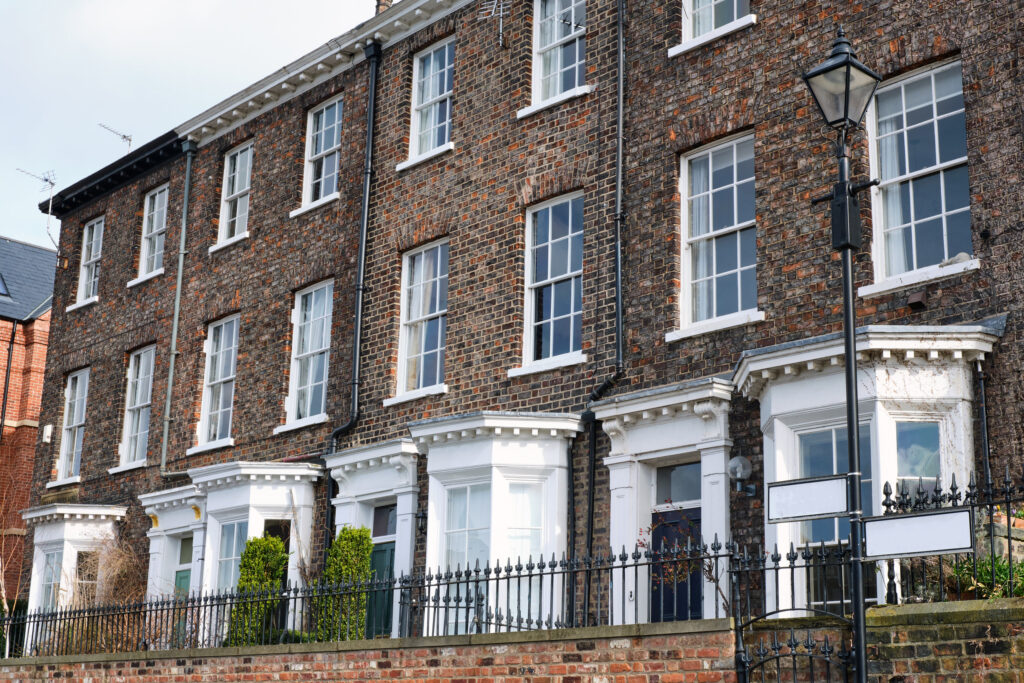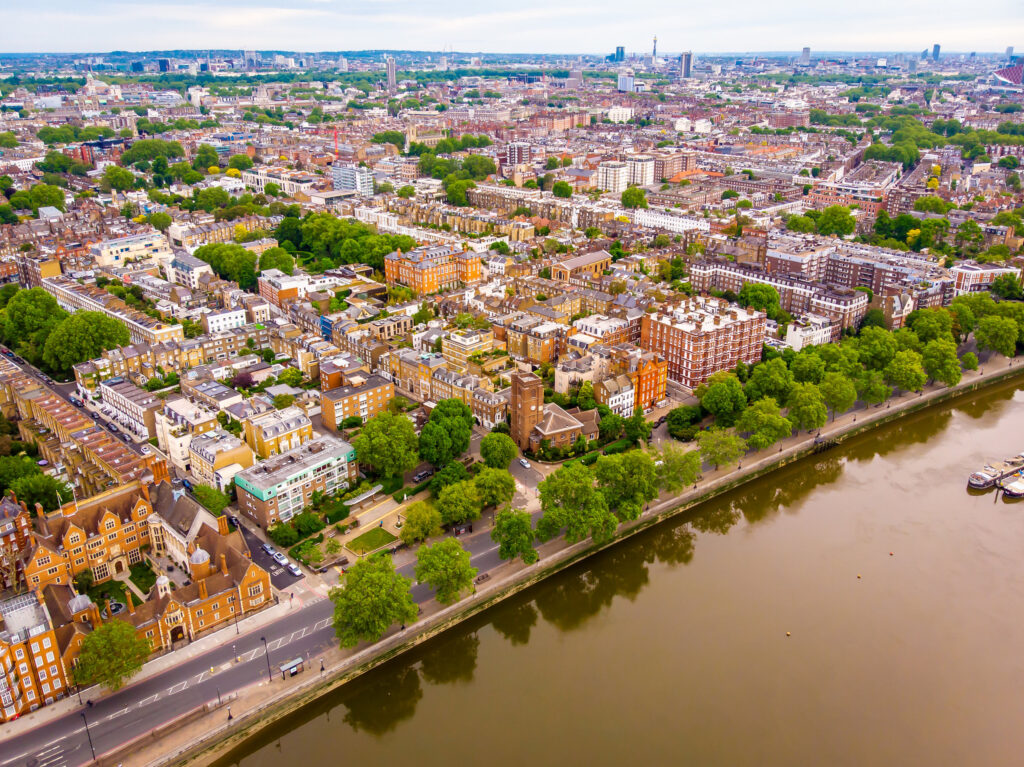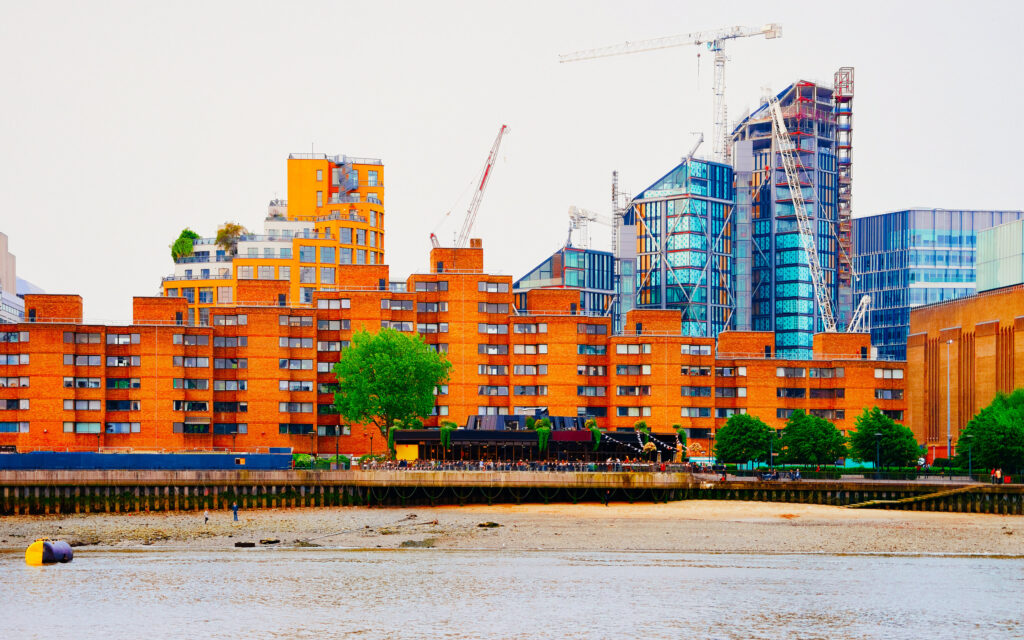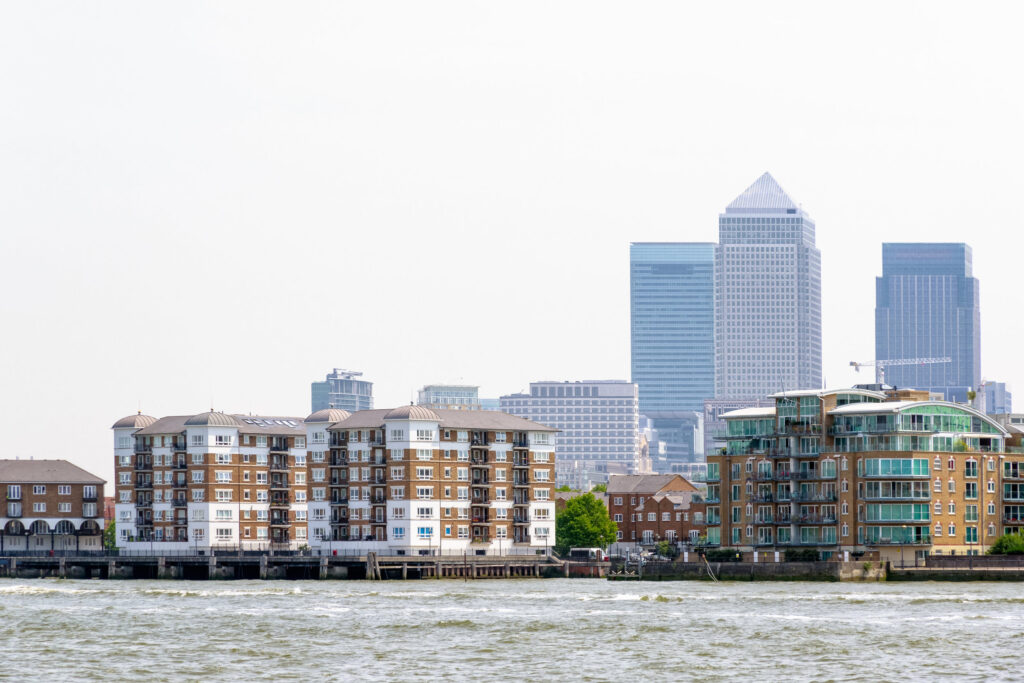
If you want to invest in a house or a flat, it is essential to understand property prices and whether, how, and why they increase in value. You may wonder how real estate agents value a property – yes, it’s a prevalent question asked by many sellers, buyers, landlords, and families.
Therefore, to understand how flats increase in value, you should understand some of the things that go into consideration when an expert values a property. In the first lines, they value the size of the property – the greater the number of bedrooms, the higher the value.
Next, estate agents think about the flexibility of the property, e.g., is there room for making changes like transforming a bedroom into a bedroom with a walk-in wardrobe? Next, they consider the neighborhood and the property’s proximity to the metro station and other means of transport.
Families desire both houses and flats more if they are close to schools where their children can go. Moreover, students and the younger workforce also look for houses and flats close to schools and offices.
Let’s now take a look at what can increase the value as opposed to what can increase the value of a house, the benefits of investing in houses and flats, and the potential downsides of investing in each of them, respectively.
Do flats increase in value?
To answer this question bluntly, yes. Flats increase in value more than other types of properties, and that has been the case, especially in the last decade or so, where they achieved an astounding 60% rise in the overall value.
This 60% means the overall price of flats increases by £730 each month. Flats were the most desired properties in London over the last ten years, but other properties like semi-detached and terraced homes became increasingly popular in the North, e.g., Wales.
In London, flats make up 50% of overall property sales which is one of the reasons why their increase in value and overall price takes place monthly. If we take a look at the sales of properties in England in the past ten years, we’ll come down to this:
- Flats made 60% of overall property sales;
- Terraced properties made 41% of sales;
- Semi-detached properties made up 31% of sales;
- Bungalows made 28% of sales;
- Detached properties made 21% of sales;
This, too, can help you understand that flats are a very desirable type of property, and the fact that they increase in value as years go by may come as no surprise. Below, we’ll compare flats to houses, which type of property is harder to sell and whose value increases faster than the other.
Are flats harder to sell than houses?
Houses are usually popular among larger families who like to reside in the countryside and own a garden or outside space that children may play in. It’s easy to sell a house if families with children and pets are looking for something larger.
However, it’s not that hard to sell a small studio or a flat if it’s in the proximity of the city center. In London, for example, people rush to invest in flats that are in a crowded city center area because students and working people look for city hotspots close to their schools and jobs.
To answer the question from the title of this paragraph – no, it doesn’t have to be harder to sell a flat than a house. Here are some of the significant advantages that come along with investing in a flat you should consider:
- Flats have a lower entry price upon purchase than houses;
- A good quality flat can cost only two-thirds of what you would pay for an average house;
- Cash returns are higher with flats;
- Yields are higher with flats;
- Renting flats is a popular business and people who work or are still students prefer renting flats to houses;
- The costs for building maintenance is usually shared;
- Buying a flat with the aid of management companies can be cheaper if they have gone bust because they will be unmortgageable;
- Buying flats in bulk will give you significant discounts;
- There is a strong demand for flats in metro areas, where their prices will soar;
- It’s always easy to make an extra bedroom by converting one room in your flat into another. For example, moving the kitchen and merging it with the living room to get an extra room;
All of the advantages of flats should give you a clear and bright picture of how selling them to a buyer is not problematic. Just think of how many students come to bigger cities each school year to study. Also, think of how many people move to bigger towns daily because their jobs require it.
Understanding how beneficial owning a flat can help you know that selling one won’t be daunting. What you should pay attention to, though, is your target audience and what’s hot on the market that day (prices of other flats and their locations).
Do flats go up in value as much as houses?

Even though it’s not harder to sell a flat than a house, as we’ve depicted above, here are some of the key points that go in favor of houses and explain why they tend to sometimes go up in value faster than flats.
- Flats are usually leasehold, whereas houses are freehold;
- Flats have numerous service charges that impact the cash flow, and the cash flow in houses is generally stable;
- You can convert your house’s garage into an extra room, extend the house, etc., which will increase the house’s value. Flats don’t have such an option;
- Flats don’t have gardens or outside spaces you can use; houses do;
- Less and fewer houses are being built, and we have an overabundance of flats, especially in city centers. This may only lead to houses becoming a premium;
- More and more people work from home and houses can offer bigger spaces for potential office areas;
- Flats are volatile when it comes to their selling and rental prices. Family buyers and sophisticated investors support houses which means their prices are relatively stable on the market;
- Houses are usually appealing to families and those who plan to live there for a more extended period. Flats are for younger people who often move and sometimes stay in them less than a year;
- Lenders view houses as lower risks, and mortgage products are more appealing to houses than flats;
All of the points we made above favor houses and should help you understand that investing in a house is not worse than investing in a flat at the heart of a busy city. All these points show that houses are very likely to increase in value.
However, this doesn’t mean that flats don’t increase in value at all. Quite the contrary, if you invest in an apartment with a desirable location, it may increase in value quickly. Take a look at some of the best ways to ensure that your flat increases in value that we will highlight below.
Ways to ensure your flat increases in value?
Before you consider investing in a property, it would be good to know who your property will target on the market. You also have to consider the property’s location as some tenants will only look for flats in the city center.
Many people look for flats that are in their job’s proximity, amenities, or local schools. Therefore, buying a property located in a desirable area will ensure that you find tenants fast. Of course, considering all the benefits and downsides of investing in a flat is a must.
Landlords in the UK want to invest in more properties because the land tax duty on properties is now worth around £500k. Flats are always self-contained unless they are a part of a large block, and if you want the flat you own to increase its value, you should look at the following points.
Flats increase in value when towns and cities grow
You can find flats in abundance in city centers, where they are, after all, most common. If you want to ensure your flat increases in value, you should invest in a flat at the heart of a growing town or city. We’ll try to explain why investing in such a flat is a win-win situation.
If more and more people come to live in a particular town, the population rises, and so does the architecture of that town or city. There will be more and more buildings, which always results in more and more flats. That’s the way it works in the vast majority of cities, at least.
Renters usually look for accommodations close to their workplaces and amenities, and the city center is always a burning point for that. You’ll never be short of applicants if you invest in a flat at the heart of a city because their jobs are more likely to be found there.
Consequently, the rise of the population and the increasing number of flats in the city center will increase the value of your particular flat. Therefore, if you want an investment with a promising future, always opt for flats in desirable areas to ensure you’ll have tenants.
In the outskirts of a city or town, more remote flats will have lesser popularity on the market. Yes, some families will want such a remote flat to enjoy retirement days, but they are in the minority. Most tenants want to experience the rush hour of the city they come to.
Flats are cheaper, so easier to increase in value
You’ll often stumble upon a debate on whether a house or a flat is better property investment. Some will argue that houses are better investments because there is no ground rent and no service charge. Additionally, house lovers also assume that you have to return your flat when the lease ends.
This belief, of course, is false. We’re not saying that flats are a 100% better investment, but they definitely are cheaper and will increase the value more efficiently. If a flat is in good shape and good quality, it will cost much less than a house of a similar size.
If there is a block of buildings and more than one flat for sale in that block, financial incentives could play an important role in purchasing more than one flat. Whether investing in a house or a flat is better is a debate that is still ongoing.
One thing is certain, though, flats are cheaper. And another thing is certain too – it is easier to increase the value of a flat than a house. If you wonder how to do it alone and can’t develop a solution, you can always consult a freeholder or an agent.
Flats are flexible and (can be) easier to reconfigure
Let’s face it; flats are more flexible living spaces than houses. All rooms are on the same level, and when you want to reconfigure a flat, it will be easier to move furniture around. For example, you could install a walk-in wardrobe in your spacious bedroom.
Or, you could combine the kitchen with the living room, turning the former kitchen into a study room. Moving furniture is more accessible in a flat, and painting walls will cost tremendously lower, and we’ll show you why.
Just think of it this way – when you own a house, you also have to paint the outside walls. When you own a flat – the outside walls are the walls of the building, and the city will cover any remodeling and repainting that might come along the way.
Not to mention the painting of the fence around the house, mowing the lawn, and trimming the bushes to keep the backyard of your house always in excellent shape. In a flat, you can have nature too – plants, but they’ll be in pots that you can always quickly move around.
Therefore, remodeling and reconfiguring a flat will always be more accessible, more flexible, and cheaper to achieve. That’s why we state this benefit of flats being flexible with great certainty. It’s not like houses are impossible to reconfigure, but they will be more complex and expensive.
Obstacles to flats increasing in value
Of course, like everything else in the world, the fact that flats increase in value over time comes with some imperfections. Naturally, it all depends on what you are looking for. Some families prefer to invest in houses but look at the following facts if you plan to invest in a flat.
Leasehold flats, for example, come with many obstacles. If you’re planning on buying one, you should try to find a conveyancing solicitor to help you sort out the critical points from the less important ones.
Leaseholds are more complex than you might expect, and you’ll need a solicitor to have you covered. Unless you consult one, you could sign a contract and find out that you are responsible for covering huge ground rent or cladding works that shouldn’t be your responsibility.
Flats usually have leasehold tenures
The first potential obstacle to increasing its value is that there will more likely be a leasehold instead of a freehold when buying it. A leasehold tenure always comes with downsides, and those are additional costs and responsibilities.
Leasehold tenures come down to this – you own the flat, but you don’t own the building that the building is inside of. Currently, the estimates say that approximately 4.2 million leasehold properties in the United Kingdom are in the rental sector (private).
As time goes by, the lease will diminish, and flats’ properties are always leasehold tenures. Yes, it’s possible to extend the lease upon the purchase of the flat. However, that always depends on the landowner of the flat. Usually, it’s costly to extend your lease.
Most mortgage companies won’t give a property loan if the flat lease is less than eighty years long. For that reason, you’ll be limited to buyers who are prepared to pay the total amount in cash.
The problem here is that after 11 years, your lease will drop to 79 years from 90. Later on, when you reach a point to sell the flat, the drop in its value will be huge, and the palette of your potential buyers will lose color extensively, leaving you with fewer options to sell your property.
Restrictive covenants
You should always consider restrictive covenants when you plan to invest in a flat. Older houses usually have covenants. In such cases, the covenant prevents the house from becoming a public space or a tannery.
However, when a family plans to buy a house, they usually think about living there for a while. That’s why families don’t worry about such covenants much when buying a house. Upon purchasing the house, they didn’t even plan to transform it into a public house.
However, when it comes to flats, the story is a bit different. A covenant of a flat may state that you can’t sublet it or that the current residents can’t do several things, like keeping pets, redoing the kitchen, etc.
These restrictions can usually cause a problem for a specific group of investors. People who plan on investing in a flat at the heart of the city for subletting will have major issues with restrictive covenants. As we’ve mentioned above, flats in the city center grow in value as that city grows.
That’s why restrictive covenants can be the most significant downside for those planning on sub-letting the flat. Covenants are simply something you should consider before you purchase the flat, and your solicitor should look for them when the conveyancing process is still going on.
Maintenance and repairs

If you are the landlord of a flat, you will be required to handle all the rental properties. All responsibilities regarding maintenance are something you have to take care of for as long as you are subletting your flat.
If you are subletting a house that has a garden, you are the one that has to maintain the garden as well. When it comes to houses, some more significant issues regarding maintenance may arise. For example, the root of a tree can grow into an underground pipe for wastewater.
If that falls under the realm of your property, that will be your responsibility too. On the other hand, a lot of maintenance issues can occur when it comes to flats. In addition, you will have to maintain all communal areas that come along with the flat.
That includes gardens, the entrance hall, etc. Sometimes you may even have to cover the repair of some parts of the roof, and if the fabric of the building requires some maintenance too, you may end up with an unexpectedly large bill.
Naturally, these maintenance issues don’t occur very often. However, you have to consider all the maintenance and repairs when purchasing a house or a flat. They won’t run you dry, but you should always prepare yourself for them.
Ground rent and annual service charges
Ground rent is something the freeholder of your leasehold property may charge you. The freeholder may also charge you a service charge annually. The service charges cover all the repair and maintenance costs. Yes, this will sometimes eat up your money.
When you have to consider ground rent and annual service charges, you must pay attention to the following:
- Is the ground rent an extra cost, or is it included in the service charges?
- What do the service charges cover?
- Do the increases have any limits?
- Is the ground rent fixed, or can it rise?
- Are the service charges fixed, or will they increase in time?
Some ground rents can increase by a couple of thousand pounds after a few years, along with the leasehold charges. That’s why you have to follow all the points we listed above to avoid facing such a scenario.
People who own a flat in a smaller block sometimes have to give money that goes into a fund for maintenance work in that building. You have to manage these funds properly because sometimes there won’t be enough money to cover the expenses of major works.
For example, roof repairs fall under the category of major works. Problems with the roof are major but spike controversial reactions because they sometimes may only affect those who live directly under it. If that’s the case, those living on the ground floor will refuse to pay.
All of these issues are something your solicitor should look into whenever the flat you intend to purchase has a leasehold. Also, always find out if any major works are about to occur shortly to avoid getting hit with a large bill right after buying the flat.
Unexpected bills
Unexpected bills are something flat owners are likely to face in their block of buildings from time to time. For example, a high-rise block may need the replacement of flammable cladding. This cost, illogical as it may seem, will fall in the hands of the tenants of that building.
Unfortunately, this is why cases such as this one occur. Building owners like to pass on all costs to the leaseholders. In cases where they feel like they’re not the ones that should commission the work, they always pass the bills to leaseholders.
Sometimes, building owners simply can’t afford to pay for all the extensive work and have no choice but to pass the bills to leaseholders. Whichever the case, as a flat owner, you should seek legal advice in such cases.
Whenever your flat is leasehold, consult a specialist and make inquiries about all costs that may occur. Situations like cladding which affects a high-rise block, are common in blocks of buildings, and it’s your job to give your best to find that out on time and maybe consider buying another flat.
Permission may be needed for flat improvements!

If the property you purchased (a house or a flat) is not listed, your landlord will be free to wherever they like to the property, as the planning permission, for example. When the property is leasehold, it’s always harder to get work done.
You will need planning permissions from the freeholder for any change you plan to make. If you can’t contact them easily, acquiring such permissions may take a lot of time. Additionally, you may also have to contact your neighbors when making changes, which is sometimes problematic.
Problems with neighbors are possible even if you own a flat. If you turn your flat into a Bed & Breakfast, you may have problems with the neighbors who will complain about tenants coming in and out very often.
Moreover, if your long-term tenants are noisy, the neighbors may complain too. For this reason, always try to find a solicitor who is experienced when you plan to purchase a leasehold flat or house. Leaseholds can be more complex than one might think.
You need to know that you are not signing up for a particular service charge that can greatly increase over time. More importantly, you need to make sure that there are no restrictive covenants attached to your leasehold. We discussed restrictive covenants in greater detail above.